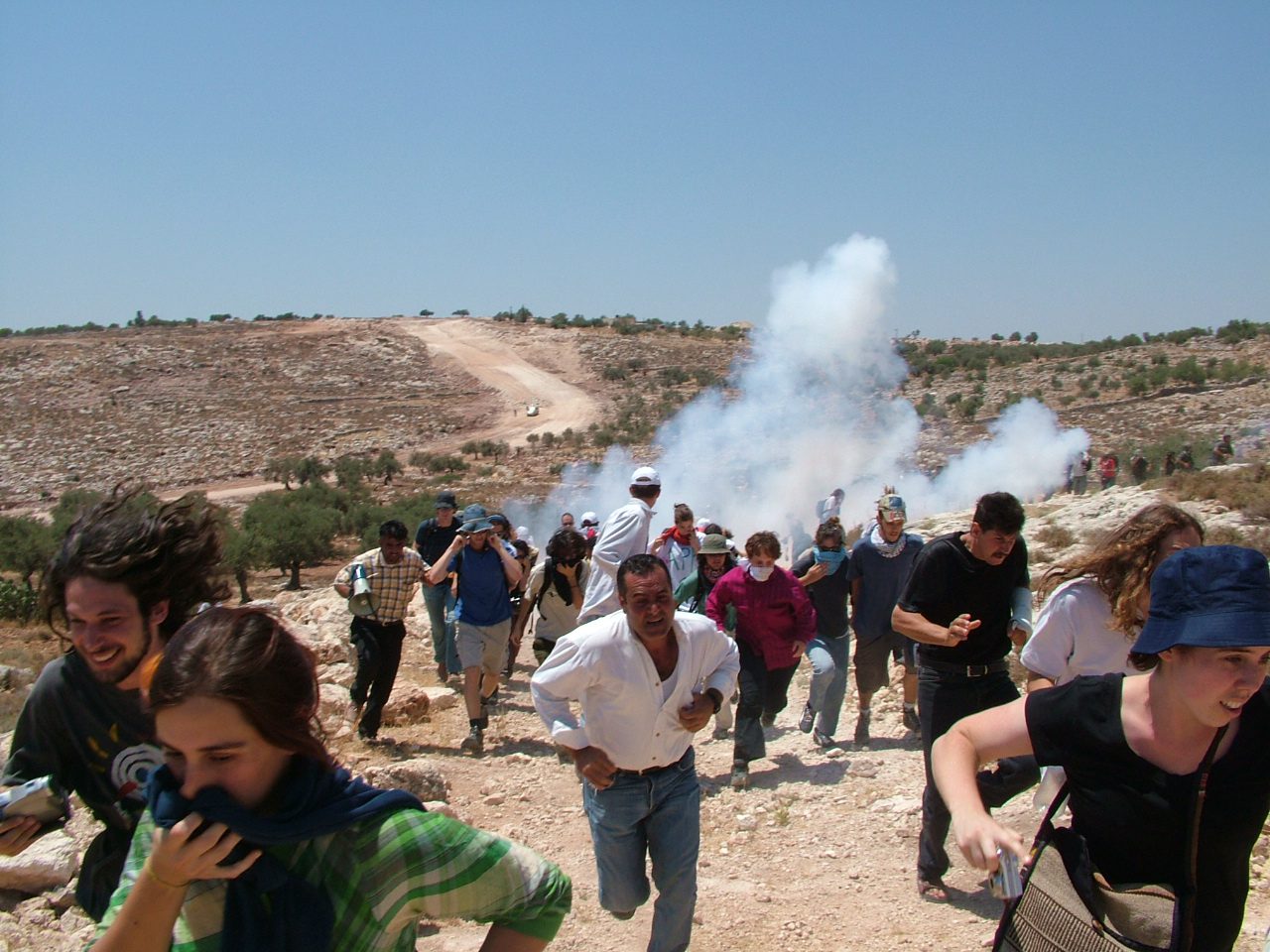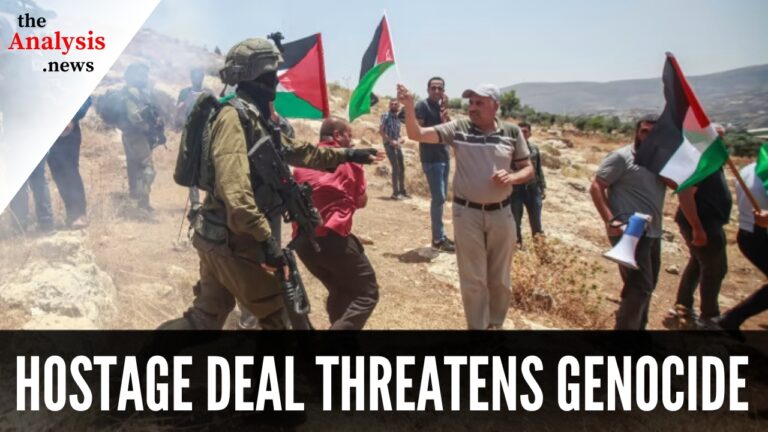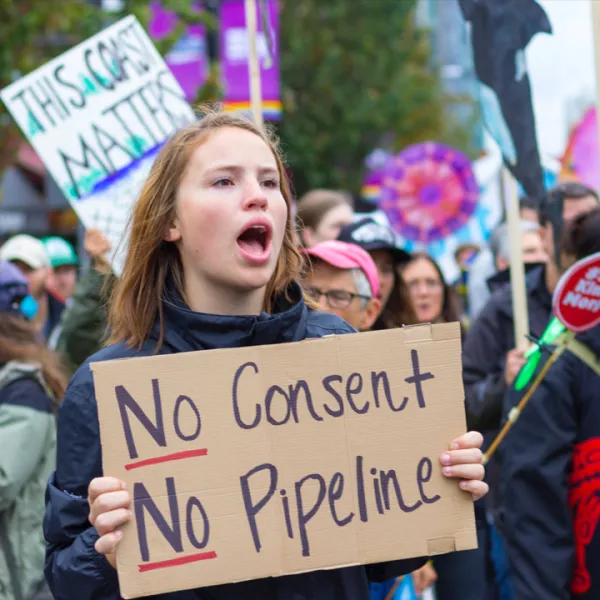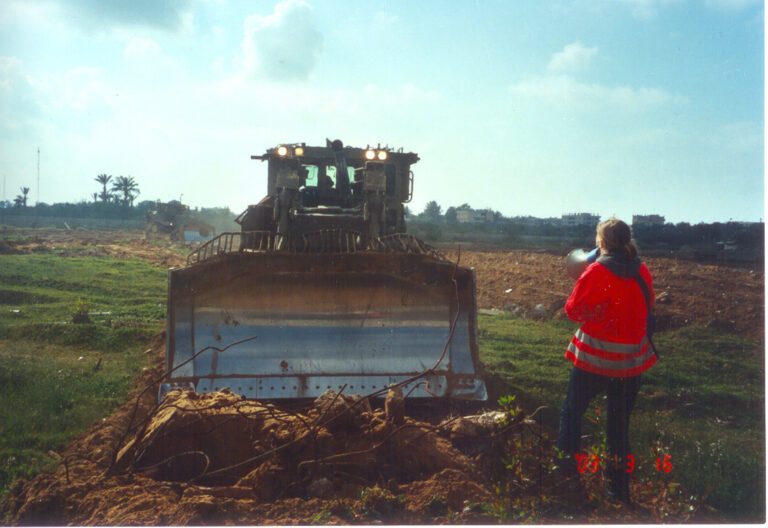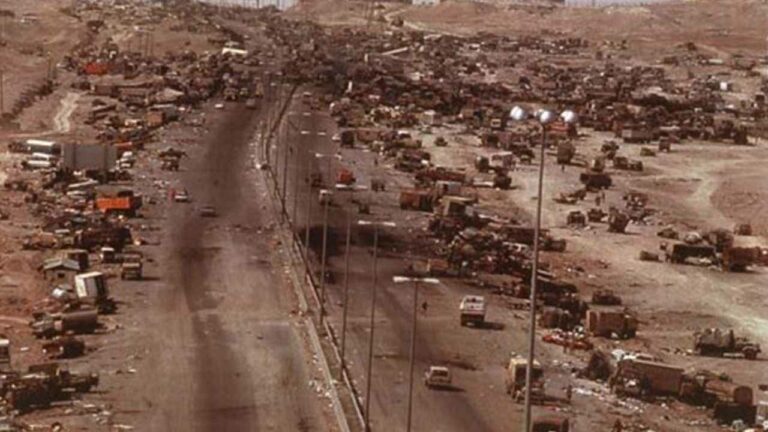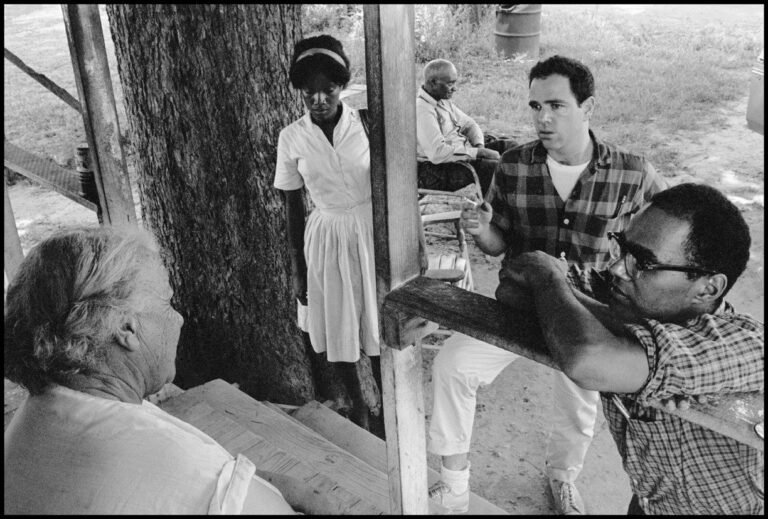Gaza Under Siege – Eva Bartlett on Reality Asserts Itself Pt 2/2
Eva Bartlett talks about her experiences living in Gaza. This is an episode of Reality Asserts Itself, produced October 5, 2014, with Paul Jay.
STORY TRANSCRIPT
PAUL JAY, SENIOR EDITOR, TRNN: Welcome to Reality Asserts Itself on The Real News Network with a Canadian journalist and activist who’s lived in Gaza for around three years. She’s back in Canada now. But how she got to Gaza and what life was like living there is the subject of our interview. So now joining us in the studio is Eva Bartlett. Thanks for joining us, Eva.
EVA BARTLETT, HUMAN RIGHTS ADVOCATE AND JOURNALIST: My pleasure.
JAY: So Eva, as I said, is an independent Canadian activist, a freelance journalist. She went to Gaza to live, starting in 2008, and lived there on and off for about three years since then. She volunteers with the International Solidarity Movement, a Palestinian-led group of international activists based in the Palestine occupied territories–or maybe now we should be calling it the state of Palestine. And she blogs at In Gaza. So talk little bit of where you live, what the situation and living conditions were like, your neighbors. Do you speak any Arabic?
BARTLETT: I do now, yeah. I learned colloquial Arabic while I was there.
JAY: While you’re in Gaza.
BARTLETT: Mhm.
JAY: And how were you received? What do they think of foreigners coming?
BARTLETT: They love it. I mean, first of all, the Palestinian nature is extremely hospitable, and they love guests, and they always give whatever they can to give their best to guests, including guests of all faiths, including Jewish guests. And I say that because there’s this common mythology that Palestinians don’t like Jewish people, and it’s not true. It has nothing to do with Jews. But anyway, I was treated very well. I was welcomed in homes all over. I felt like–I never felt any sort of fear for my own safety. On the contrary, I felt like if I ever needed help, I could ask for it. And it happened time and again that some Palestinian would think I needed help and rush up to me. So, yeah, treated well, had Palestinian friends. Basically, life there, if you want to travel and live like a Palestinian, you take shared taxis from point A to B. And it’s a good chance to interact with people in the taxi, because you have a whole bunch of people crammed into an old Mercedes. And people, when they saw me, they would immediately start talking with me. And this was another thing that speeded up my Arabic learning, because I was really trying to communicate with people, and they really wanted to tell me the good things, but they also wanted to tell me how they were suffering under the siege and what had happened, how their house had been demolished or their problems with having no electricity or–you know, any of the numerous problems that they have in Gaza.
JAY: So what was your experience, direct experience of these kinds of problems?
BARTLETT: Okay, so I think–can I talk first about the ISM work in Gaza?
JAY: Yeah, sure. Yeah.
BARTLETT: So, basically, we accompanied farmers in the border regions, because whenever they try to access their land, they come under–almost on a daily basis they come under Israeli machine gun fire. Many farmers have been killed. Many more have been injured by this fire. And the Israelis say this is about security, but they’ve established a restricted area, and which they say is 300 meters from the border but which in fact is up to 2 kilometers from the border. And it basically eats up about one-third of Palestinian farmland. So when farmers who have worked on their land for decades, like elderly farmers or whose parents are–you know, for generations they’ve worked on the land, try to go there now, they’re assaulted by, again, the machine gun fire or by shelling.
JAY: Did you witness some of the shooting?
BARTLETT: Oh, yeah.
JAY: Yeah?
BARTLETT: Yeah. I mean, I have videos of us with the farmers under heavy fire, bullets whizzing past us.
JAY: It’s one of the things the ISN people do is they try to put the–you would put yourselves between the farmer and the guns?
BARTLETT: The idea is that ideally the Israeli army won’t shoot us. I mean, we don’t want them to shoot the Palestinians, but if nobody’s around, they will shoot the Palestinians. If somebody’s around to witness, ideally they won’t. That said, they did shoot a farmer when we were with them. They just shot around us and they hit the farmer in the leg. Thankfully, he wasn’t killed. But one of the troubling aspects of being injured in the border region is that if you are shot, say, in an artery, you can’t get to medical care in time, more often than not, because the ambulances won’t come that close, because they are also targeted by the Israeli army. So in the case of a young man at a demonstration, he was shot on land about 500 meters from the border. He was shot in his pulmonary artery. And by the time he reached an ambulance, he had bled out and didn’t survive. So that’s one reason we would walk with the farmers, and also to hopefully enable them to either plant their crops or harvest their crops for that season. And it’s all about standing with them in solidarity, not saving them or anything like that, but just standing with them because they are being attacked by one of the most powerful armies in the region and they have no means of defending themselves. And these are just civilians who are just trying to access their land. And they need it, obviously, to feed their families or to provide food to the community. On the other hand, because of these policies, most farmers have given up. And that means that there’s no longer that cheap produce and grains that used to be available on the markets. And the same goes for–.
JAY: The Israeli argument for these–what happens on the border is–they say that–and I guess there’s some truth to it, but there are rockets being fired into Israel from some of these farms and border area. What did you see of that?
BARTLETT: I know that there are rockets being fired. I never saw that myself. But I think what’s important to note is that if there are rockets being fired, does that mean that you can just target any young or elderly or middle-aged farmer who is just on their land? What do they have to do with rockets being fired at Israel? And what is the nature of these rockets? Are they as powerful as Israel’s saying? Are they as powerful as the one-ton bombs that Israel drops on Gaza? And do they compare with the arsenal that the Israeli army inflicts on Gaza and, I mean, waging wars on Gaza whenever it wishes? But specifically Israel does target civilians and does basically impose collective punishment in many forms, including the attacking of Palestinians, but also the different policies of the siege that they impose on the Palestinians of Gaza.
JAY: And talk a little bit about living conditions, what you experienced, what you saw, your neighbors.
BARTLETT: Yeah. So for the first year or so, I lived both with other ISN activists in an apartment in Gaza City or at times on my own in an apartment in Gaza City, and later with a family in central Gaza. So that was more insightful, living with a family, because it was not a wealthy family. I mean, 80 percent of the 1.7 million people there are dependent on food aid for their survival. So most houses in Gaza suffer power outages of basically that they have six to eight hours of power a day, and that’s on a good day. More recently, it’s become more like five hours of power, or in December it was two or three hours of power a day, which obviously impacts in all aspects of life. And also, so if you don’t have electricity and you’re not connected to the water, then–I mean, for example, some families would pump water from a nearby tap or something, a town tap, and it would pump it through a series of hoses, like the family I was living with, up onto the rooftop container. But if the water’s on and you don’t have power, then you can’t do that. So that means that you can go a day or two without water, because the water in some areas only comes every two or three days. So that’s one aspect. The poorer of the families that–who mostly are refugees, which is, like, three-quarters of the population–many of them also are not connected to electrical lines or to sewage lines. So it just means that their conditions are even worse. And they tend to live in very shoddy dwellings with asbestos rooves and very thin walls. And so, for example, when Israel bombs, then you have not only the problem of the house being destroyed, but all the asbestos that pollutes the air. And it’s obviously a dangerous contaminant.
JAY: When were you there last? ‘Cause I think we should point out you’ve been back in Canada for a little while now.
BARTLETT: Yeah, I was there last in March 2013.
JAY: Okay. And what was the mood in terms of people’s feeling about the Hamas government, people’s feeling about what had gone on in Egypt? What was the mood?
BARTLETT: Overall, I would say the mood is just people are desperate to just live a normal life. They want to have freedom of movement. They want to have their borders open so they can export and have a functioning economy. They want to be able to import things that are being banned, like construction materials, so they can rebuild their homes. They want a regular supply of diesel and fuel for both their vehicles and also for the power plant, because the power plant itself was bombed in 2006, so it’s basically hobbling along, and it doesn’t have a steady supply of fuel. So that’s one of the reasons there’s such long power outages.
JAY: And my understanding now is–I mean, as most people know, a lot of the goods that were coming in are coming in through the tunnels from Egypt. What’s the status with the tunnels now?
BARTLETT: The tunnels, as far as I’ve read, have been all but completely destroyed by the Egyptian military. And this is, of course, after the coup in Egypt last year. Until–before the coup, I mean, there were–by some accounts there were over 1,000 tunnels bringing in everything that Israel was banning. And it is important to note that Israel wasn’t just imposing or isn’t just imposing an economic siege. It was from about late 2007 or so until 2010. It was banning the most ordinary and mundane things, like baby formula, diapers, fertilizers, paper, toys, shoes. But it was allowing in certain things, like luxury chocolates or, after John Kerry protested, pasta. But, I mean, the critical things that you need for everyday life were being banned, and many of them still are, including construction materials. And the power plant, as I mentioned, has never been fully rehabilitated because the Palestinians aren’t able to bring in the transformers or whatever it is they need. So that’s a critical issue. And I think another issue to note is that with the sanitation crisis, I believe that right now the current crises–because there’s more than one: there’s the sanitation crisis, the water crisis, the power crisis, the food shortage–these could all be solved if Israel opened the borders, allowed construction materials in, allowed the Palestinians in Gaza to expand their sewage holding pools and their sanitation lines, and have the proper chemicals needed to treat the sewage, because right now, as it is, if they have power and they’re able to pump the sewage, they do so pumping it into the sea, largely untreated, at a rate of 90 million liters a day.
JAY: And you’re saying open the borders. You mean open the borders to goods for trucks to go back and forth.
BARTLETT: To goods–I mean, there are goods that come in the one crossing. There used to be more crossings, but most of them have been closed except the one–I can’t remember if it’s–I think Kerem Shalom, or Karm Abu Salem in Arabic. But open the borders to exports, too, because that’s obviously a large part of the Palestinian economy. They used to export all sorts of clothing, furniture, fruits, etc. And now, except for a token, you know, truckload or two every now and then, they’re closed.
JAY: So what is the economy?
BARTLETT: An NGO economy. I think the biggest business there are the NGOs. Obviously, that doesn’t really help the Palestinians that much. People are dependent on food aid. Eighty percent of the population doesn’t have enough money to buy their own food. So, yeah. There used to be factories that would make food products and export them to the West Bank and other Arab areas. They don’t do that now. So, yeah. I mean, there are still fishers that try to fish, even though they’re limited to less than 15 percent of their fishing waters and there’s no fish there–the fish are beyond six or seven miles, and the migrating fish come beyond six or seven miles, and they’re limited to three miles. And even within the three miles, they’re attacked brutally by the Israeli Navy with machine gun fire and shelling. So the fishing economy has been decimated. The agricultural economy has been decimated. Their exports have been decimated. But these are all, as I said, reversible, right? Stop attacking the fishers and the farmers and open the borders to exports–and to freedom of movement, because people, students, for example, who want to study abroad are in many cases not able to exit, either via Israel or via Rafah. Medical patients who need care that is not available in Gaza are often not able to exit. And it even gets to a sadistic level, where groups like, for example, Physicians for Human Rights Israel have taken the testimonies of patients who had referrals to leave Gaza and who, when they tried to leave, either were delayed and missed their appointment or were told by the Israeli soldiers at the border, you have to work with us, meaning you have to become a collaborator or a spy, and if you don’t, then just go back to Gaza and die.
JAY: And as you got to know people living there, there’s no way anyone can live in such a situation without getting angry. It seems like the objective almost is to make life unbearable.
BARTLETT: Yes.
JAY: So when you’re living in an unbearable situation, what do people in Gaza that you got a sense of, what do they think is a doable, achievable resolution to this? I mean, Hamas is–you know, as far as I understand, Hamas has said they’re more than willing to negotiate. They won’t change, you know, some of the principles in their charter, but in practical effect they actually do recognize the state of Israel and say they will negotiate. But that doesn’t move anywhere because of what? And why? And what’s your sense of where this might head?
BARTLETT: Well, when you look at the bigger picture of the rest of Palestine, I mean, for example, the so-called peace talks that are often ongoing that John Kerry seems determined to, you know, push forward and achieve some sort of so-called peace resolution, every time they meet, in between the Israeli authorities announce that they’re going to expand their colonies. So when you talk about peace and justice for–even a segment of justice for or semblance of justice for Palestinians, continually expanding the colonies is not going to achieve justice. I mean, they need to take and dismantle the colonies altogether in the first place. But in terms of Gaza, first of all, I find that the overriding sentiment I found was not anger or hatred. Yeah, frustration and hopelessness, but really I did not find that many people that were super angry. They were more just like, this is our life, you know, we’ve always been under occupation, insha’Allah it will get better. And, of course, you know, they–frustration. They’re frustrated by the power outages, etc., by not having fuel for their cars or not being able to leave Gaza when they need to. But I found more that people have turned inward and they maybe embrace their faith more, whether they’re Christian or Muslim. But I certainly didn’t find a whole lot of what is portrayed often in the media of hatred and the angry Arab kind of image. On the contrary, I found still a lot of love, still a lot of willingness just to move forward if allowed to be, if allowed to move forward.
JAY: And so what’s blocking that?
BARTLETT: Well, Israel still imposes a siege on Gaza. They still don’t allow construction materials into Gaza. They–I mean, before the November 2012 attacks, the Israelis assassinated a top Hamas leader that was largely seen–Jabari I think his name was–as being somebody who would be a successful negotiator for some sort of peace. And he was assassinated. So, I mean, I think that–I don’t know–it seems like–what can the Palestinians do? They’re under occupation. They’re under blockade. And the Israelis are not willing to lift the siege on Gaza, and at the same time they’re always patrolling the skies with their F-16s and their drones They continue to fire on fishers. I mean, those seem like the obvious things that are blocking any sort of moving forward.
JAY: Right. Alright. Thanks for joining us.
BARTLETT: You’re welcome.
JAY: And thank you for joining us on The Real News Network.
END
Podcast: Play in new window | Download
